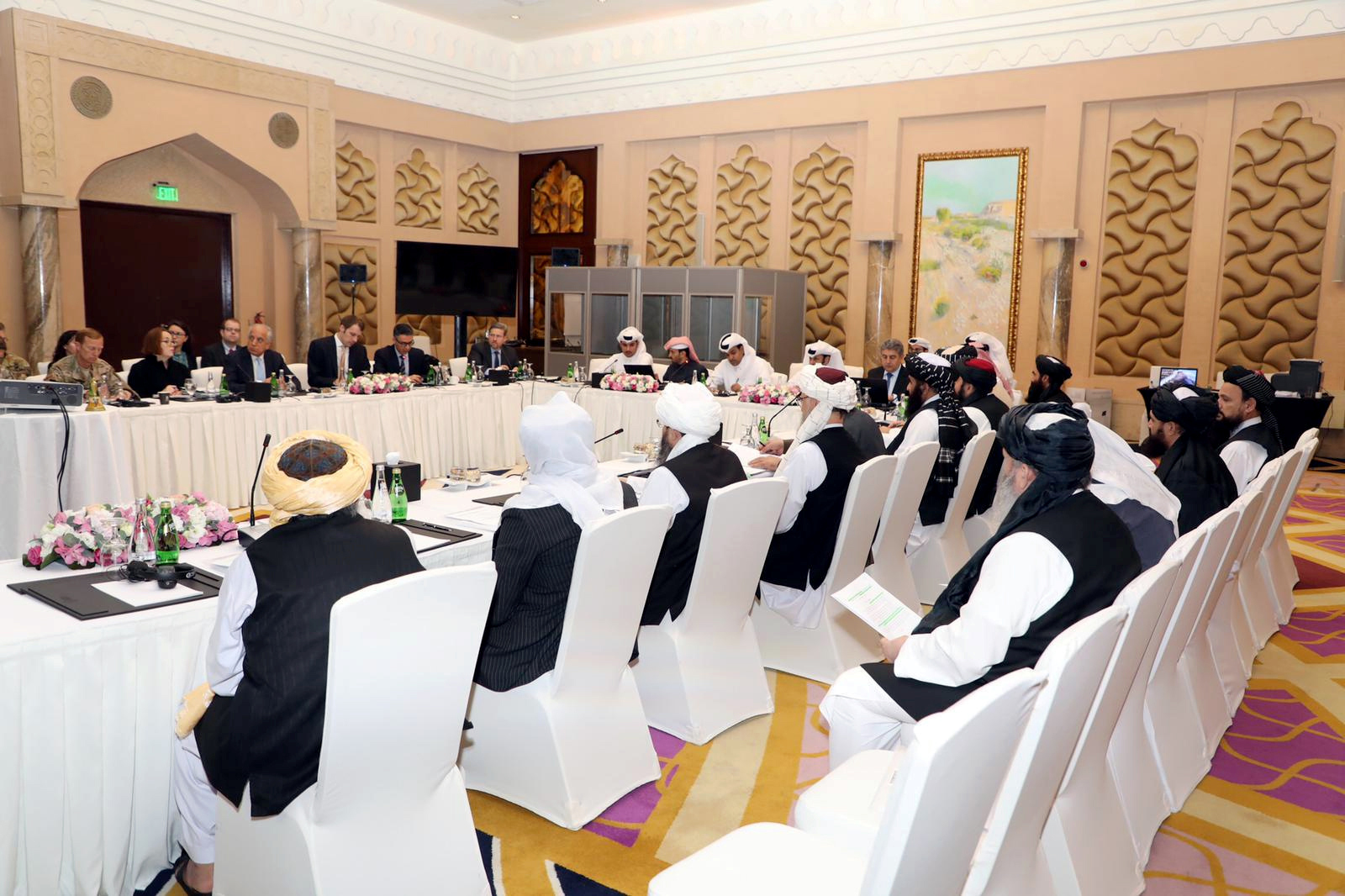Taliban's ambiguous strategy: Attend Afghan peace talks while carrying out attacks
The war in Afghanistan has been going on for almost two decades. The superpower, United States could not bring the Taliban to its knees and consequently decided to withdraw its troops from the country opening a new door for politics, diplomacy and, subsequently talks.

- Country:
- Afghanistan
The Taliban is ostensibly indulging in a dual strategy where it is engaging in peace dialogues with stakeholders in foreign countries while carrying out deadly attacks on the soil of Afghanistan. The recent intra-Afghan dialogue in Doha ended with a joint statement calling for "appeal and promise to reduce violence in Afghanistan". But the meeting was not the first of its kind, two meetings were also held in Moscow this year.
Although this two-day summit was seen as a "roadmap for peace", but ironically, when talks were to take place Afghanistan was suffering from violence in a fresh attack by the Taliban on the very same day. The car bomb attack that occurred on Sunday killed eight security personnel and six civilians in Ghazni and also wounded nearly 200 people - including dozens of school children.
Hypocrisy on the part of Taliban?
This seems to be sheer hypocrisy on the part of the Taliban. On one hand, its representatives met Afghan delegates in Doha to chalk out a peace plan but at the same time it carried out attacks in the home country. The summit between the Afghan representatives and the Taliban was organized by halting the ongoing US-Taliban peace talks which began on June 29. The attack on Sunday is not the first incident where Taliban resorted to violence in the home country while holding peace dialogues in another country. Even when the talks were going on with the US, the Taliban continued to resort to terrorist attacks which took the lives of sixteen people and left more than 100 civilians, including 51 children, wounded.
The Afghan government had not been made part of the direct US-Taliban talks as the group considers Ashraf Ghani's government to be a puppet of the West. They later agreed to meet Afghan delegates only in their personal capacity.
The major demand of the Taliban is the withdrawal of all Western forces from Afghanistan and not allow them to use Afghan territory for global military purposes. They want to "free" Afghanistan from the presence of foreign powers for which they are killing the innocent citizens of Afghanistan.
Challenges to normality in Afghanistan
US President Donald Trump announced in January that US troops will be withdrawn gradually from Afghanistan and the announcement brought a new turn in the Afghan war which has been going on for nearly two decades. Since Taliban's major concern was with American presence which it believed was ruling Afghanistan from Washington, it was being speculated that the withdrawal of foreign forces will bring a sense of sovereignty and Afghanistan will be on the path to normality. But even after the announcement of the withdrawal of US troops, there have been a number of attacks by Taliban in the war-torn country and continuation of such attacks even during the peace talks pose a challenge for Afghanistan as well as the international community.
The attitude of the Taliban during such dialogues and summits makes one more skeptical and adds to the problem instead of resolving it. There is an urgent need to chalk out a way where the Taliban agrees to halt attacks in Afghanistan, at least as long as the dialogues and summits are going on.
(Disclaimer: The opinions expressed are the personal views of the author. The facts and opinions appearing in the article do not reflect the views of Devdiscourse and Devdiscourse does not claim any responsibility for the same.)
- FIRST PUBLISHED IN:
- Devdiscourse










